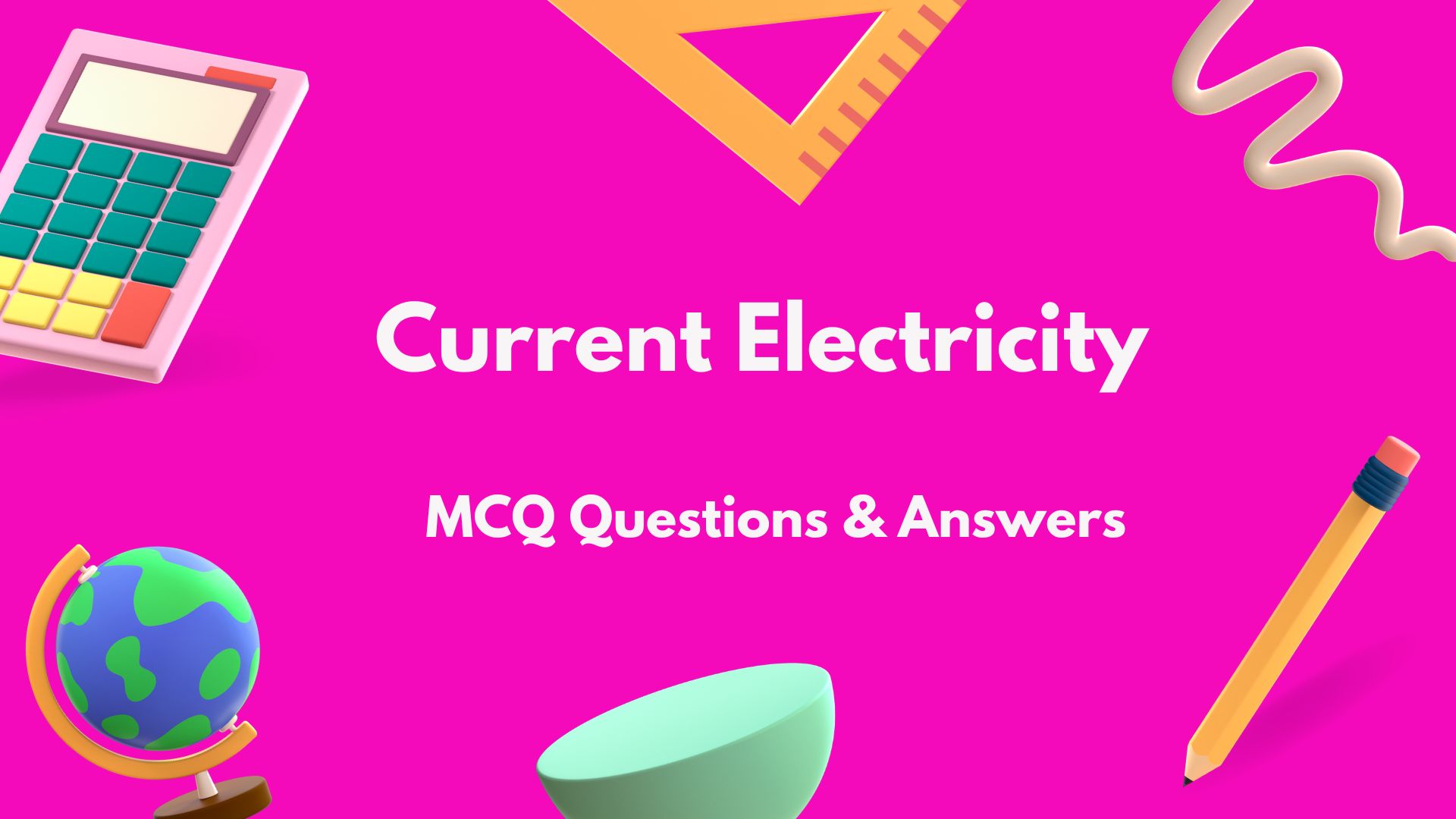Current Electricity MCQs
1. You have to replace 1500 Q resistor in radio. You have no 1500 Q resistor but have several 1000 Q ones which you would connect
(a) two in parallel
(b) two in parallel and one in series
(c) three in parallel
(d) three in series
2. Two resistors are said to be connected in series when
(a) same current passes in turn through both
(b) both carry the same value of current
(c) total current equals the sum of branch currents
(d) sum of IR drops equals the applied e.m.f.
3. Which of the following statement is true both for a series and a parallel D.C. circuit?
(a) Elements have individual currents
(b) Currents are additive
(c) Voltages are additive
(d) Power are additive
4. Which of the following materials has a negative temperature co-efficient of resistance?
(a) Copper
(b) Aluminum
(c) Carbon
(d) Brass
5. Ohm’s law is not applicable to
(a) vacuum tubes
(b) carbon resistors
(c) high voltage circuits
(d) circuits with low current densities
6. Which is the best conductor of electricity ?
(a) Iron
(b) Silver
(c) Copper
(d) Carbon
7. For which of the following ‘ampere second’ could be the unit ?
(a) Reluctance
(b) Charge
(c) Power
(d) Energy
8. All of the following are equivalent to watt except
(a) (amperes) ohm
(b) joules/sec.
(c) amperes x volts
(d) amperes/volt
9. A resistance having rating 10 ohms, 10 W is likely to be a
(a) metallic resistor
(b) carbon resistor
(c) wire wound resistor
(d) variable resistor
10. Which one of the following does not have negative temperature co-efficient ?
(a) Aluminium
(b) Paper
(c) Rubber
(d) Mica
11. Varistors are
(a) insulators
(b) non-linear resistors
(c) carbon resistors
(d) resistors with zero temperature coefficient
12. Insulating materials have the function of
(a) preventing a short circuit between conducting wires
(b) preventing an open circuit between the voltage source and the load
(c) conducting very large currents
(d) storing very high currents
13. The rating of a fuse wire is always expressed in
(a) ampere-hours
(b) ampere-volts
(c) kWh
(d) amperes
14. The minimum charge on an ion is
(a) equal to the atomic number of the atom
(b) equal to the charge of an electron
(c) equal to the charge of the number of electrons in an atom
(d) zero
15. In a series circuit with unequal resistances
(a) the highest resistance has the most of the current through it
(b) the lowest resistance has the highest voltage drop
(c) the lowest resistance has the highest current
(d) the highest resistance has the highest voltage drop
16. The filament of an electric bulb is made of
(a) carbon
(b) aluminium
(c) tungsten
(d) nickel
17. A 3 Q resistor having 2 A current will dissipate the power of
(a) 2 watts
(b) 4 watts
(c) 6 watts
(d) 8 watts
18. Which of the following statement is true?
(a) A galvanometer with low resistance in parallel is a voltmeter
(b) A galvanometer with high resistance in parallel is a voltmeter
(c) A galvanometer with low resistance in series is an ammeter
(d) A galvanometer with high resistance in series is an ammeter
19. The resistance of a few meters of wire conductor in closed electrical circuit is
(a) practically zero
(b) low
(c) high
(d) very high
20. If a parallel circuit is opened in the main line, the current
(a) increases in the branch of the lowest resistance
(b) increases in each branch
(c) is zero in all branches
(d) is zero in the highest resistive branch
